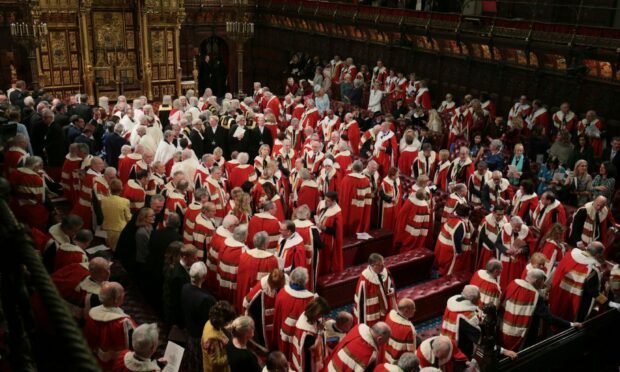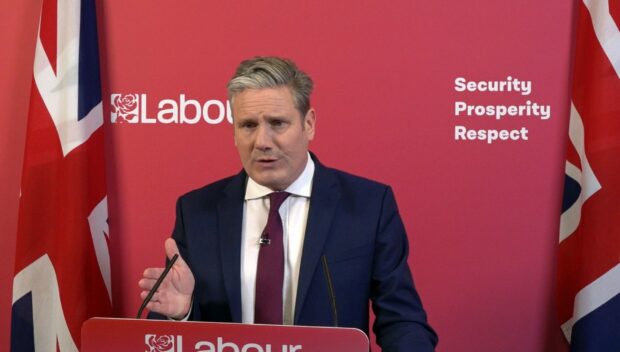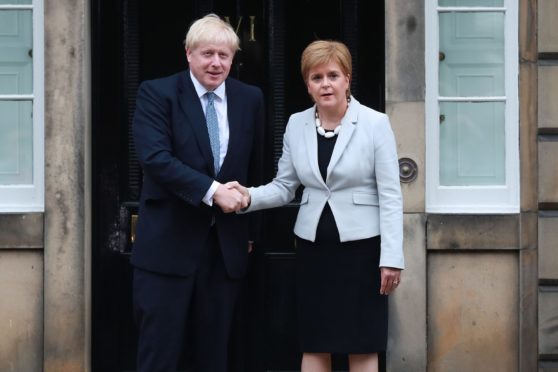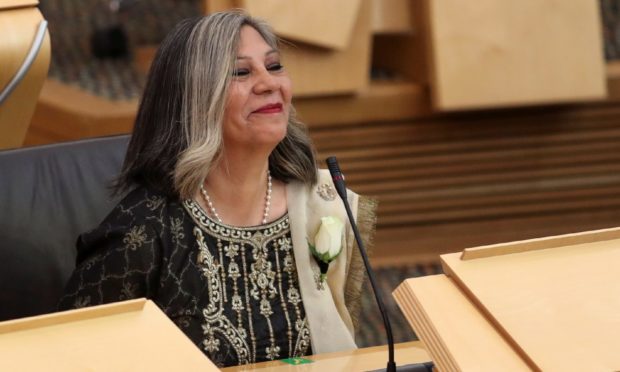Labour would scrap the House of Lords and impose a legal duty for Holyrood and Westminster to work together under a new alternative to independence unveiled by Anas Sarwar.
The Scottish Labour boss warned a standoff between Scotland’s two governments has “wounded” the devolution settlement.
Giving a speech to the Fabian Society in Westminster, Mr Sarwar outlined a new blueprint for the constitution in the first of a series of papers on reforming the UK.
It would include replacing the Lords with a new senate of “nations and regions”, a requirement in law for the Scottish and UK Governments to work together, and “joint governance councils” to resolve any disputes.
Mr Sarwar also ruled out any prospect of his party working with the SNP following the next General Election.
Political rivals accused the Scottish Labour leader of being “out of touch”.
Scrapping the House of Lords
Mr Sarwar insisted the House of Lords “has no place in 21st century politics”.
“It is unacceptable, and has been for far too long, to have unelected representatives wielding such power,” he said.
“The House of Lords must be abolished and replaced with an institution which better reflects the make-up and the identity of the United Kingdom.”
The paper proposes replacing the Lords with a new senate made up of directly elected members with a mandate to represent their nation or region.
Labour has a long history of calling for the abolition of the House of Lords dating back to its famous ‘Labour clears the way’ campaign poster in 1910.
A similar call was made in Labour’s 2019 manifesto, and UK leader Sir Keir Starmer mentioned it in his leadership pitch to the party.
He appeared to back away from the idea last year, saying only that the House of Lords “needs change”.
But Anas Sarwar said Sir Keir is fully signed up to this latest plan.
The idea of a senate of nations and regions also featured in Labour’s election manifesto under Ed Miliband.
Cooperation underpinned by law
Mr Sarwar claimed devolution in Scotland is under threat by “two parties that want to end it ” – the SNP in Edinburgh and the Tories in London.
He argued it should not be about “gamesmanship or dispute” but rather cooperation and shared responsibility.
Labour’s proposal is for a legal duty to cooperate on areas of “shared responsibility” agreed collectively by the serving UK and Scottish Governments, and local authorities where appropriate.
It cites energy, social security, transport and support for refugees as examples.
There would be no requirement for joint decision making but governments would be required to show opportunities for joint working were “sufficiently explored”.
This would also mean providing advance access to policy development and regular meetings at both a ministerial and official level.
‘Joint governance councils’
Labour has yet to settle on the name but they are clear joint governance councils are the way to heal the “bad relationship” between parliaments.
These would effectively be forums for dispute resolution.
“Too often, the current UK Government keeps the Scottish Government in the dark,” Mr Sarwar said.
“And too often the current Scottish Government deliberately seeks disagreement with the UK Government.
“This does not lead to good governance – it undermines the union.”
The exact number of these councils would vary depending on what needs to be resolved but Labour proposes three be set up as a priority.
This would include a “high-level” council featuring the leaders of the devolved administrations, representatives for England and the prime minister.
Labour also proposes a finance and trade council.
How have other parties responded?
SNP MSP Kaukab Stewart accused Labour of a “Trump-like attempt to deny the results of a democratic election in Scotland”.
She said: “The only way to protect Scotland from the damage of a disastrous Brexit we didn’t vote for is with the full powers of independence.
“Anas Sarwar’s absurd suggestion that all Scotland needs is a reformed House of Lords shows just how out of touch he is and only strengthens the case for independence still further.”
Lib Dem Scottish Affairs spokeswoman Wendy Chamberlain said: “Labour may be a little late to the conversation over how to build a better UK but it is better late than never.
“Throughout the debates over independence and Brexit, the Liberal Democrats have made the case for a new and lasting dispute resolution mechanism that puts the needs of our constituents ahead of petty party politicking by the Conservatives and SNP.
“Likewise reform of the House of Lords has long been a liberal goal.
“Though it does not go far enough in terms of support for building a federal UK and delivering fair votes, this paper contains some worthwhile ideas.”






